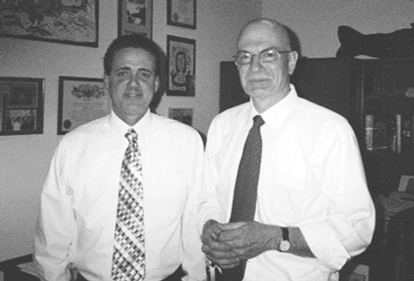Federal judge reduces award significantly, but grant’s plaintiff’s attorney fees
U.S. District Judge P. Kevin Castel has ordered a big reduction in the damages awarded by a jury last year to Alejandro Martinez, a gay man who suffered an unjustified public lewdness arrest in the men’s room of the World Trade Center PATH station on February 1, 2000.
Last November 18, a federal jury in Manhattan awarded Martinez approximately $1.1 million in damages, finding that his claims of false arrest and malicious prosecution against several named PATH police officers and the Port Authority were supported by evidence that the officers conducted planned arrest sweeps during which they targeted people they thought were gay even though they did not observe them violating any laws, in order to meet a quota of citations and fines. The jury accepted Martinez’s claim he had been prosecuted for public lewdness even though there was no “probable cause” for his arrest.
Defendants filed motions to set aside the verdict or reduce the damage awards. Most of Castel’s September 2 opinion was devoted to an extensive review of trial evidence, after which he concluded that the defense motions to overturn the verdict or to order a new trial should be denied, since the merits of the case supported the jury’s conclusion in Martinez’s favor. However, Castel found that the damages awarded were excessive, and ordered them reduced to $464,000.
However, Martinez’s attorneys prevailed in their motion seeking an award of fees and costs in an amount of $264,322.76, on top of the reduced damages award, so the total bill to the Port Authority will run to more than $725,000 unless the agency decides to appeal further. Should it do so and lose, it would probably get hit for an additional attorneys fees award.
Martinez sought compensation for his “emotional distress, mental anguish, and loss of liberty” in connection with his arrest, after which he was detained for 19 hours under conditions he found traumatic and degrading. He also sought compensation for therapy costs, for the additional distress he suffered when he had to appear in court to face the charges against him, ultimately dismissed, and for legal expenses incurred in defending himself at that trial.
Castel had no problem affirming the jury’s award of $1,000 for therapy expenses, $3,000 for legal expenses in defending the criminal case, and $100,000 to compensate for the emotional distress and mental anguish of standing trial on unwarranted charges. But he considered the $1 million awarded for the arrest and detention far in excess of what could be justified. Castel looked at comparable awards for emotional distress and loss of liberty.
“An award above $200,000 would exceed a permissible award for the pain and suffering that Martinez faced as a result of the false arrest,” Castel wrote. “Martinez was not subjected to physical assault,” a factor held to justify higher damage awards in other cases. “The evidence supports the conclusion that he experienced considerable anguish because of his arrest. This included sleeplessness, loss of appetite, anxiety bouts, cessation of social, volunteer, and church activities, ideations of suicide, and concerns about his immigration status.”
Castel found that an award of $200,000 would not “shock the judicial conscience, ” and that an additional $160,000 award for the period of improper detention would be appropriate, resulting in a reduction from one million to $360,000.
However, Castel did not find any ground to reduce the jury’s award for malicious prosecution, the inappropriate prosecution of Castel on unwarranted charges resulting in the emotional distress of having to stand trial on these phony charges.
“Martinez appeared in state trial court to defend himself from the charge of public lewdness, a highly stigmatizing charge,” he wrote. “Martinez stated that the trial made him feel desperate, nervous, and ‘like a madman.’”
The jurors also heard testimony about “intimidating conduct” by Port Authority police officers who originally arrested Martinez when they saw him coming through the station again en route from his New Jersey home to his court appearance in June 2000.
The Port Authority opposed a large part of the attorney fee award, claiming that Martinez’s attorneys wasted significant time in attempts to find evidence of anti-gay bias by the Port Authority during extensive pretrial discovery of documents. Castel found that although the extensive discovery did not turn up “a smoking gun, there is no evidence indicating that it was frivolous, dilatory, or otherwise constituted harassment” of the Port Authority. He was also persuaded by Martinez’s evidence that “the Port Authority conducted sweeps without regard to probable cause,” justifying the investigation on his attorney’s part.
Martinez was represented by Michael L. Spiegel, his lead trial counsel, with the assistance of additional attorneys.
gaycitynews.com


































